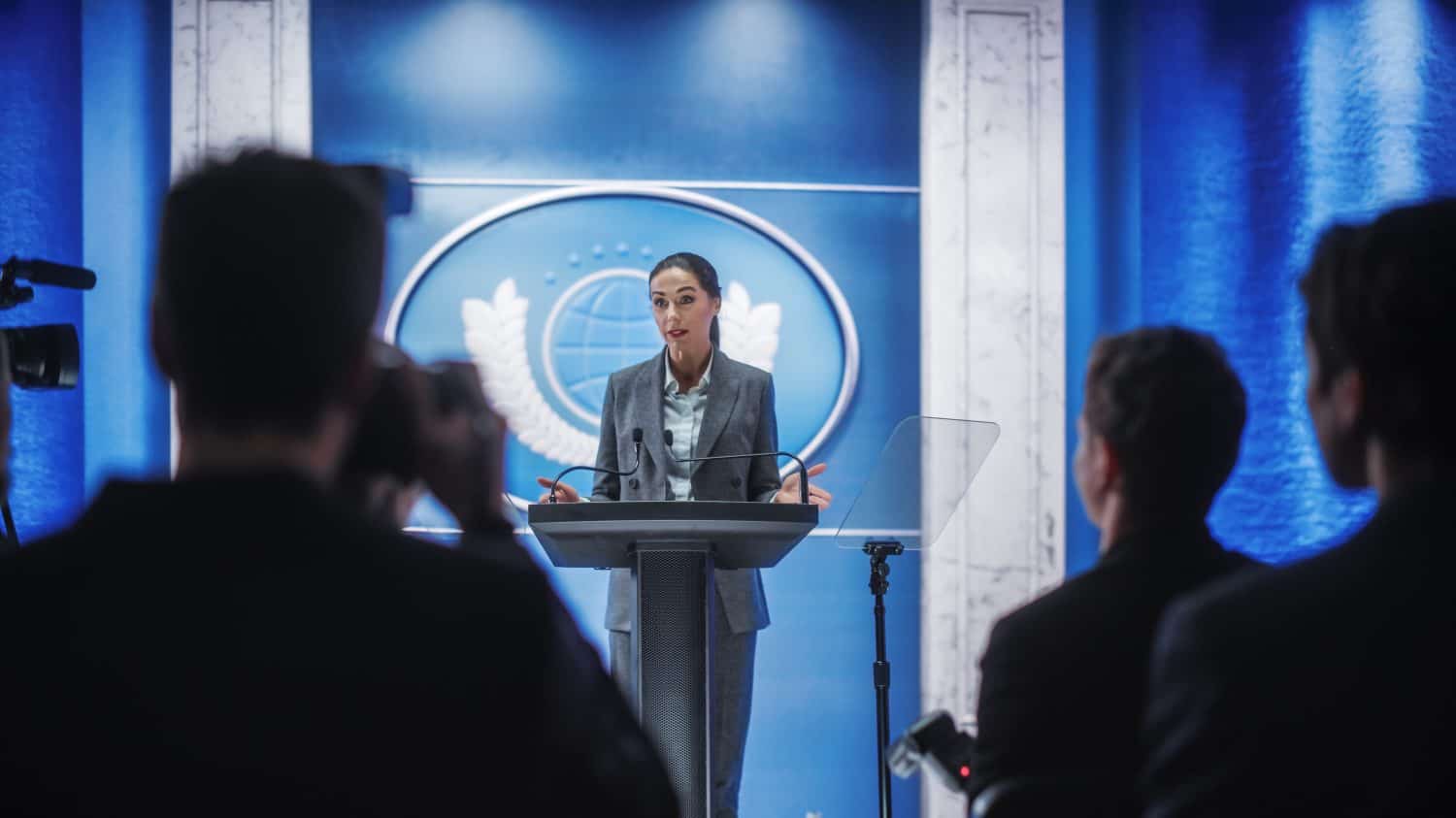
In a few days we’ll find out whether the United States will have its first female president. If so, this will be something new for us, but not to dozens of other countries that have already had a woman as their highest political leader.
24/7 Wall St. Insights
- Women have served in the highest political office in 128 countries on every inhabited continent.
- Most countries of Europe and the Americas have already had female leaders.
- Also: Discover “The Next NVIDIA
Positions of Power
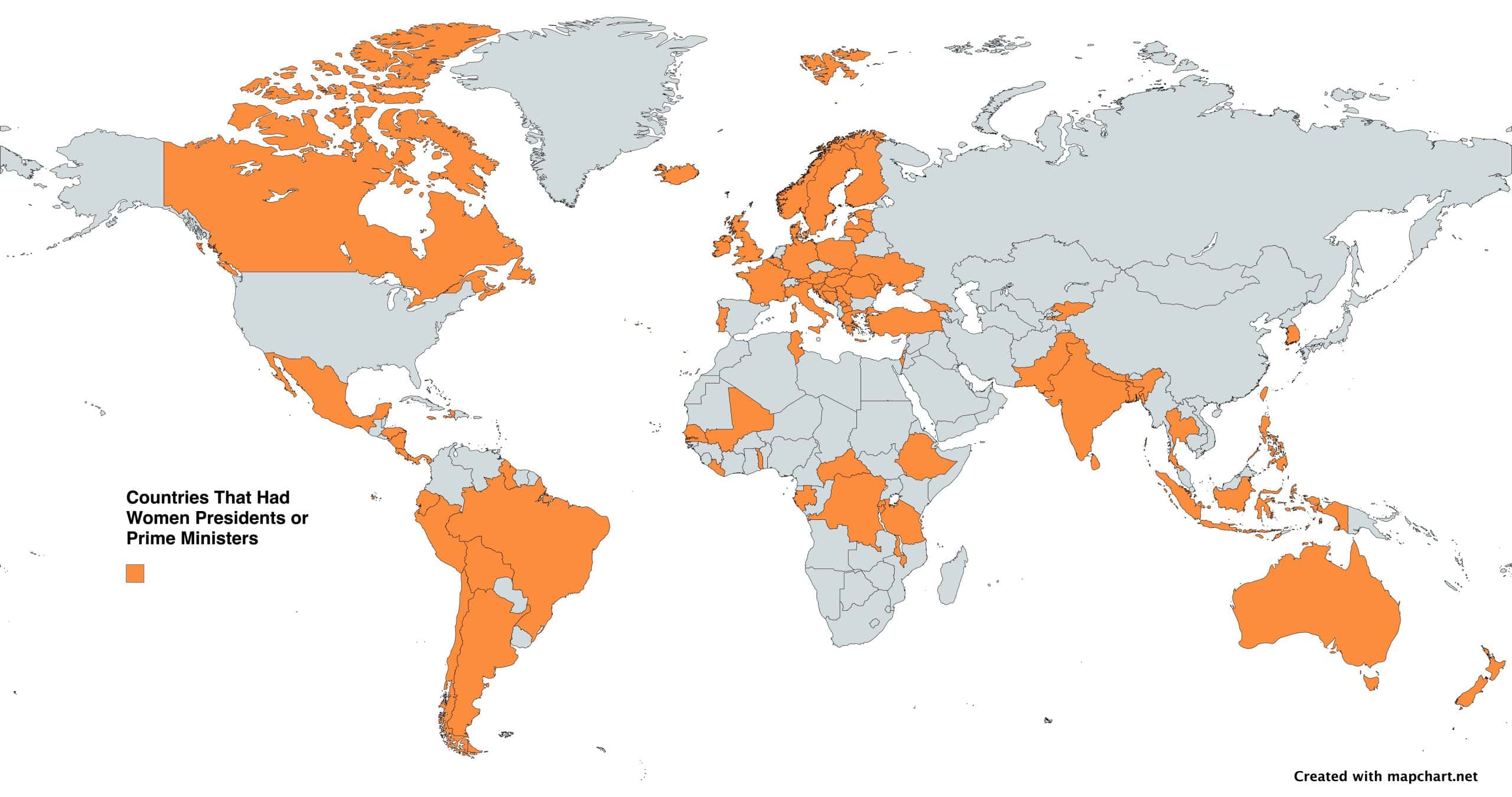
128 countries have already had a woman as chief executive. As illustrated in this map, these include most countries of the Americas and Europe as well as a dozen or more in Africa and Asia. In some countries there is a prime minister who holds the real power and a president with more of a ceremonial role as head of state. Either way, its a precedent-breaking achievement when women attain these highly visible national leadership roles. Some of them have gone on to prominent positions in the United Nations and other international organizations as well.
Inspiration and Information

We’ve collected a random sample of female heads of state from all over the world with photos and information about their roles. One way this article can be of use is as inspiration for young people—especially young women. Parents and teachers might use it as a source for young people to learn more about female leaders who interest them. And if you know anyone who still has reservations about women’s ability to lead at this level, you might find this list a good starting place to get them more information to inform their views.
1. Sirimavo Bandaranaike (Sri Lanka)
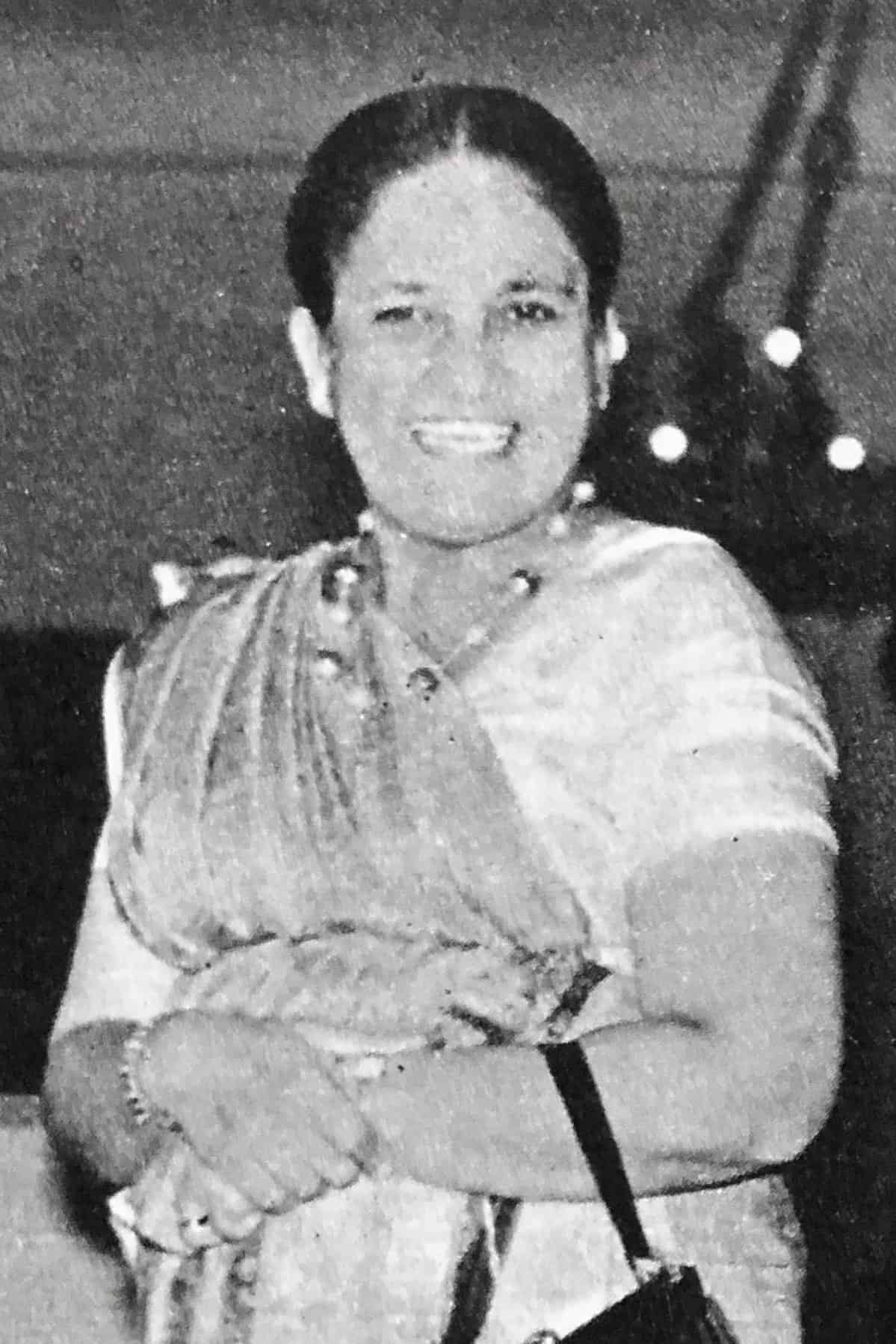
Sirimavo Bandaranaike was prime minister of Ceylon (now Sri Lanka) for three terms from 1960-65, 1970-77, and 1994-2000. She was the first female prime minister anywhere in the world. Her daughter, Chandrika Kumaratunga, later became Sri Lanka’s president.
2. Indira Gandhi (India)
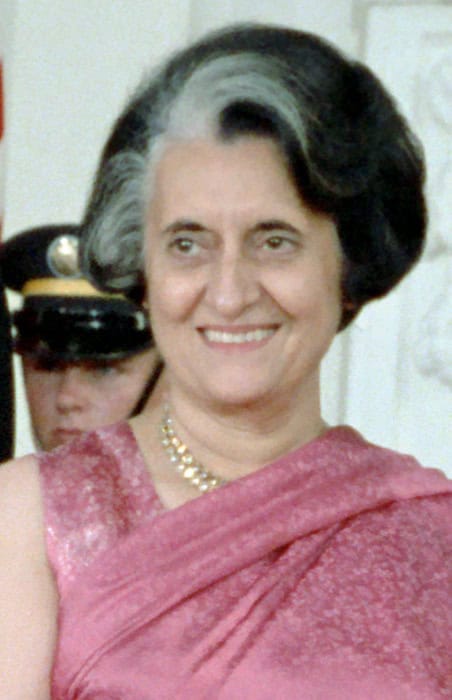
Indira Gandhi was prime minister of India for two terms from 1966-1977 and 1980-1984. Neither she nor her husband were related to Mahatma Gandhi, the Indian independence leader. “Gandhi” is actually a rather common name in India. Indira was the daughter of Nehru, India’s first prime minister after its independence. She ordered an assault on the Golden Temple of Amritsar to drive out Sikh militants. In reprisal, her bodyguards assassinated her in 1984.
3. Golda Meir (Israel)
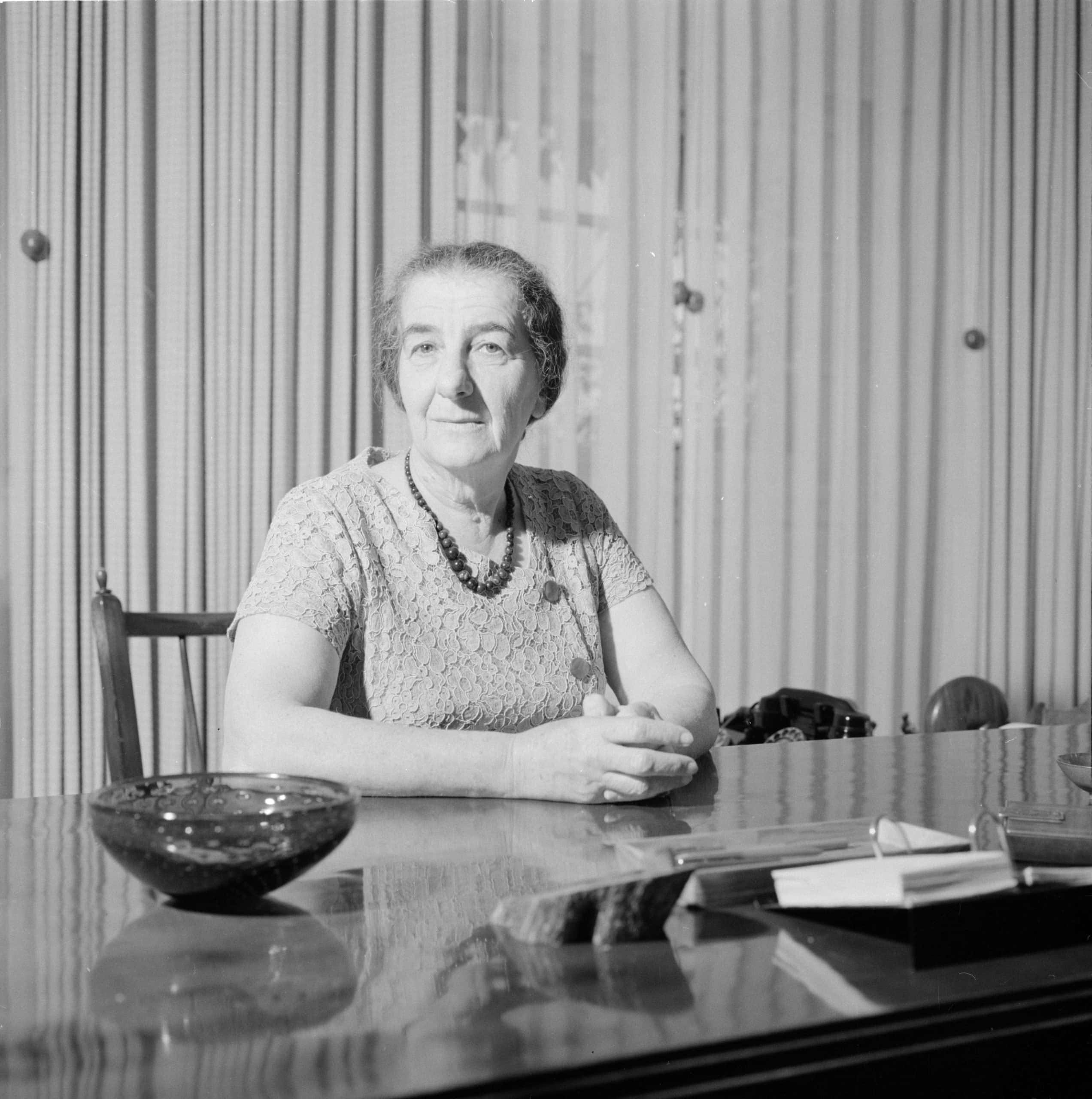
Golda Meir was one of the signers of the Israeli Declaration of Independence in 1948. She became the country’s prime minister in 1969 and served until 1974. Meir led Israel successfully through the Yom Kippur War in 1973, fighting off a 2-front attack from Syria in the north and Egypt in the south.
4. Isabel Perón (Argentina)
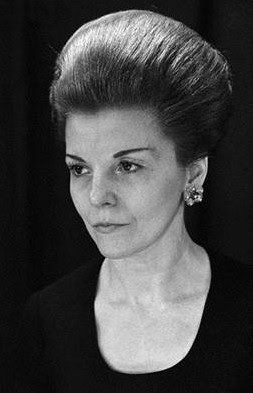
Isabel Perón was the third wife of Juan Perón, an authoritarian leader of Argentina. Juan is better known for his famous first wife, Eva (“Evita”), who died while he was still in office. Later, when he passed away, Isabel became president and the leader of the Peronist movement. She served from 1974-1976, when she was overthrown by a military coup.
5. Elisabeth Domitien (Central African Republic)
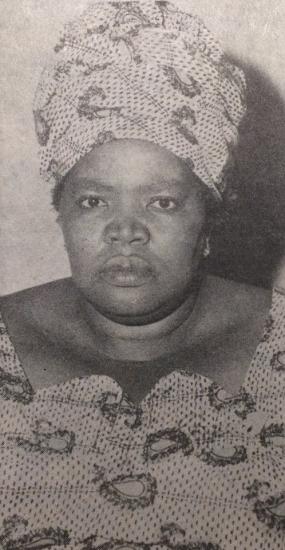
Elisabeth Domitien was the prime minister of the Central African Republic, a country of Saharan Africa, from 1975-76. Under her leadership, the country focused on issues like healthcare, education, and women’s issues.
6. Margaret Thatcher (United Kingdom)
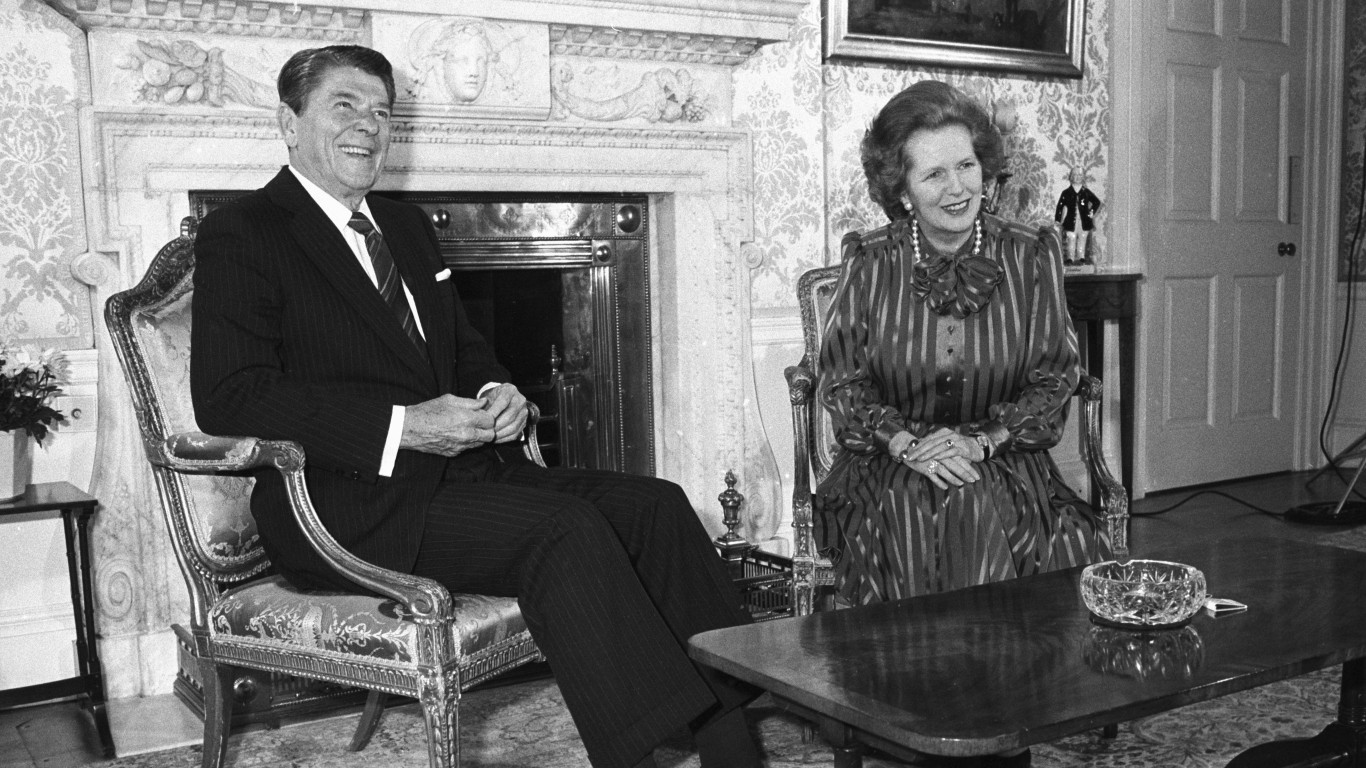
Margaret Thatcher was Prime Minister of the United Kingdom from 1979-1990. She was a conservative politician, often compared to Ronald Reagan who was president of the United States in the first part of her prime ministership. Like him, she implemented business-friendly policies and took an assertive role in foreign affairs. When Argentina invaded the Falkland Islands, a British territory in 1982, she sent the British fleet 10,000 miles to the South Atlantic to successfully reclaim them.
7. Eugenia Charles (Dominica)
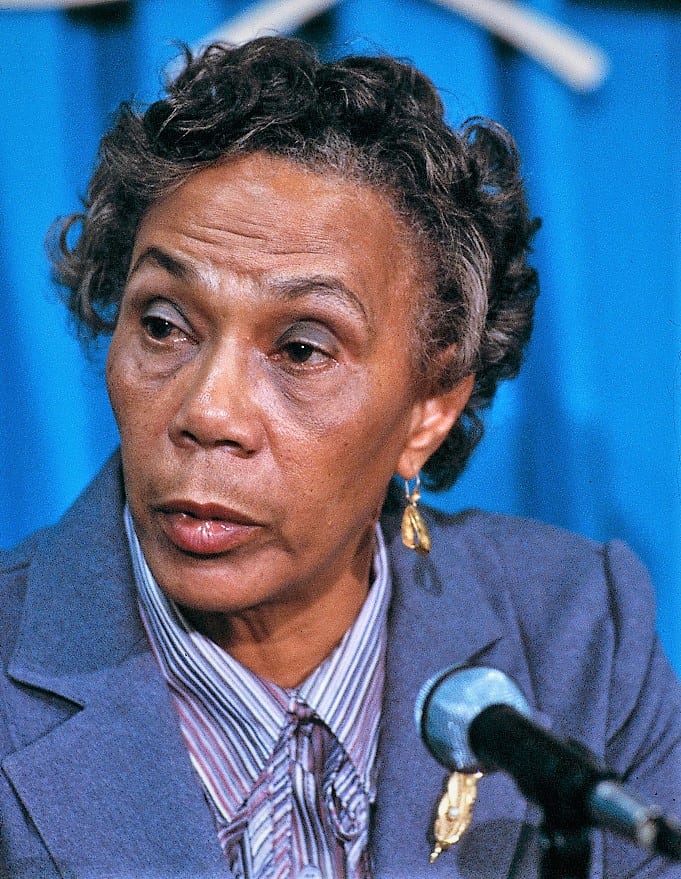
Eugenia Charles was Dominica’s longest-ruling prime minister, from 1980-1995. She maintained strong ties with the United States and supported the American invasion of Grenada to remove the Marxist government there.
8. Gro Harlem Brundtland (Norway)
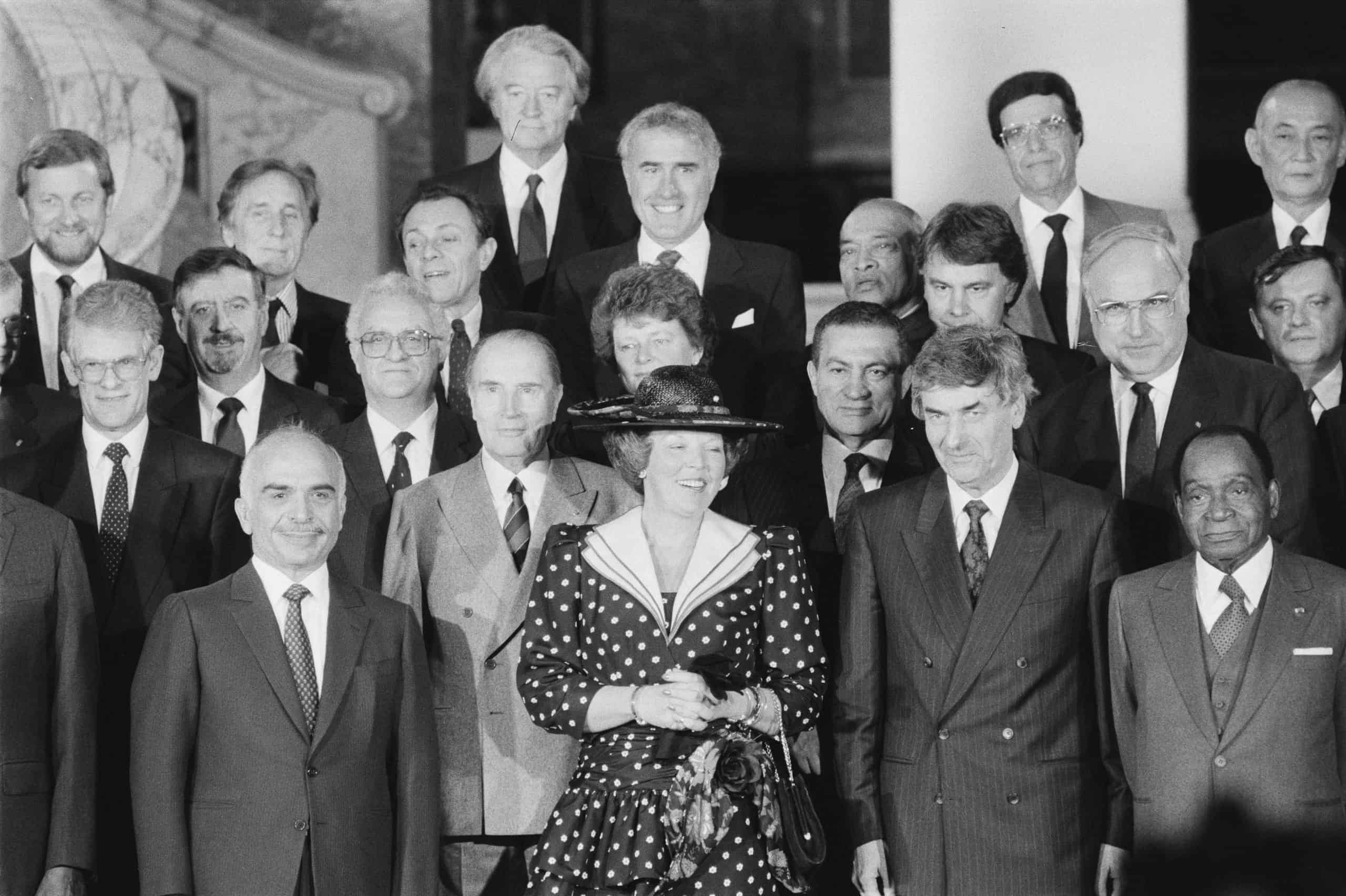
Before becoming prime minister of Norway, Gro Harlem Brundtland was a physician. She was prime minister in 1981, 1986-89, and 1990-96. Healthcare was a major emphasis under her leadership. Later, she took the position of Director-General of the World Health Organization.
9. Corazon Aquino (Philippines)
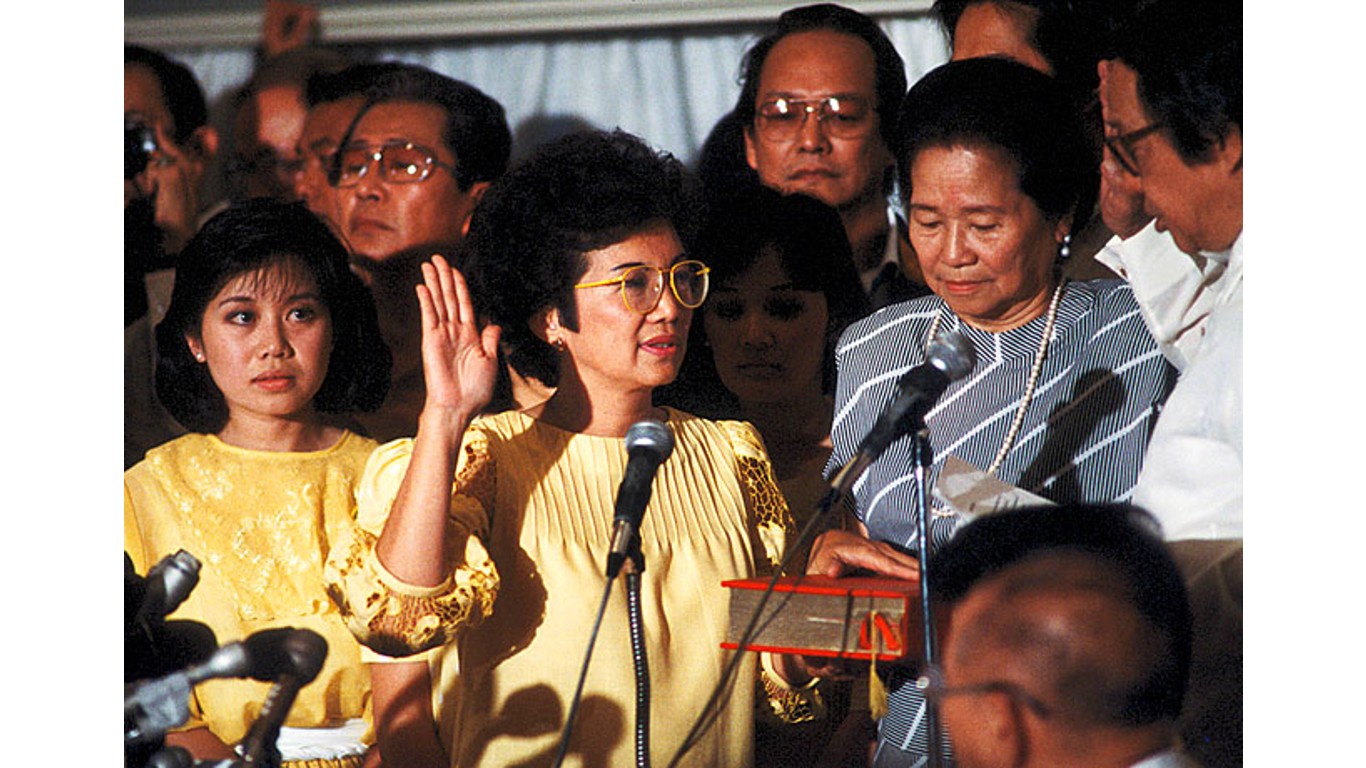
Corazon Aquino restored democracy to the Philippines after the death of Ferdinand Marcos, the country’s dictator. Aquino served as president from 1986-1992. She has been nicknamed “the mother of Filipino democracy.”
10. Benazir Bhutto (Pakistan)

Benazir Bhutto was the first prime minister elected to leadership in a Muslim country. She served as prime minister of Pakistan in two terms, the first from 1988-1990 and the second from 1993-1996. Educated at Harvard and Oxford Universities, Bhutto was a strong advocate of women’s rights and social reform. She was assassinated in 2007.
11. Violeta Chamorro (Nicaragua)
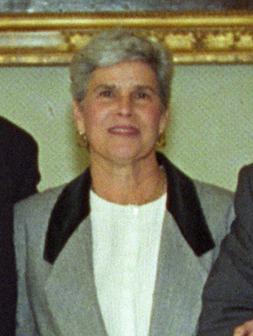
Violeta Chamorro’s election as president of Nicaragua in 1990 was highly significant, because this removed the militant Sandinista regime from power which had been sharply at odds with neighboring countries and the United States. A journalist and newspaper owner, Chamorro remained in office until 1997, helping the country make a smooth transition to democracy.
12. Mary Robinson (Ireland)
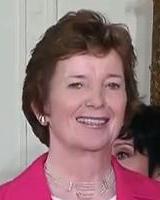
President of Ireland from 1990-97, Mary Robinson was a proponent of climate-friendly policies and social reform. She received awards for her work in social justice. After leaving office she became the United Nations High Commissioner for Human Rights.
13. Kim Campbell (Canada)
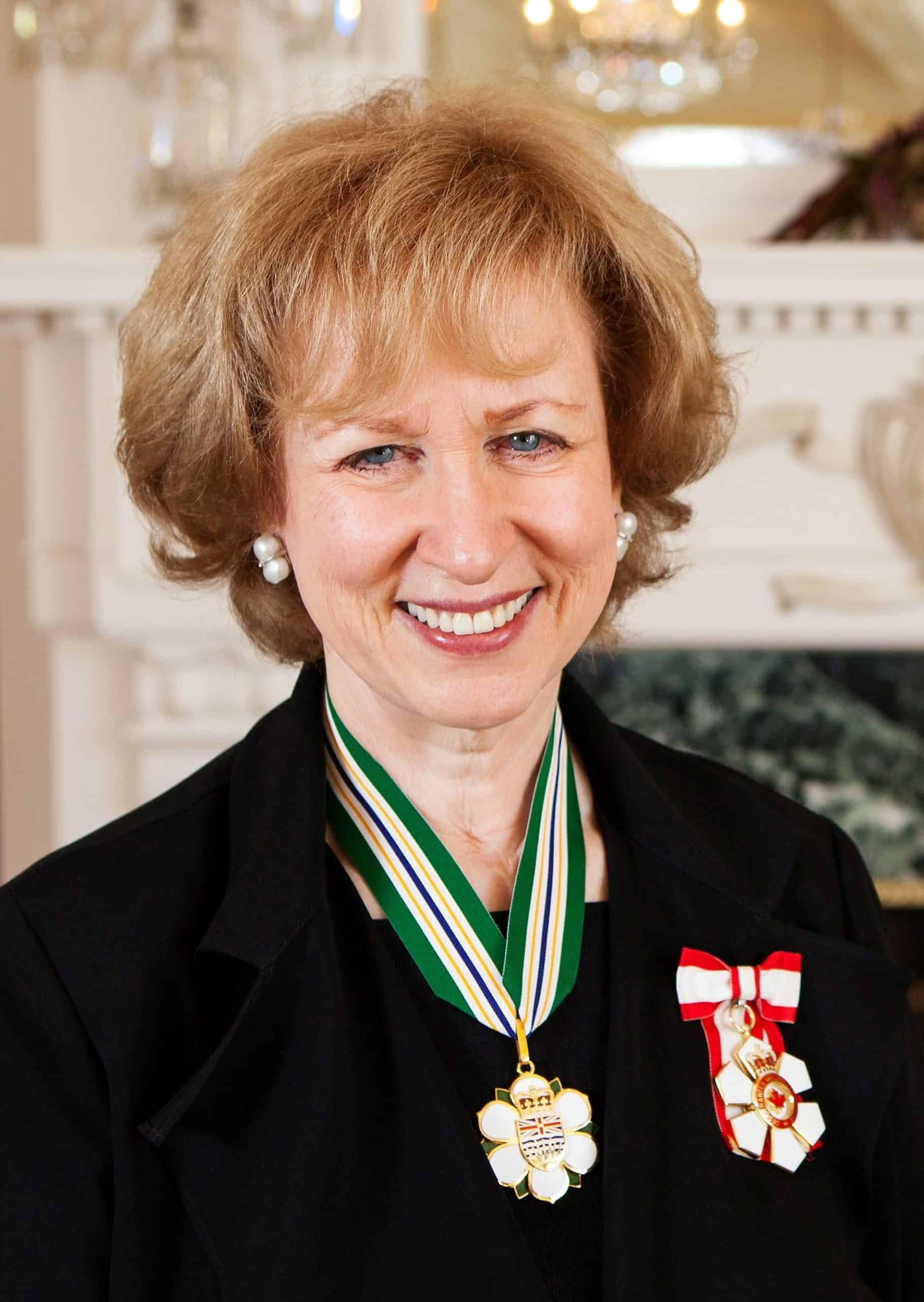
Kim Campbell was Canada’s first prime minister, but she served only from June-November 1993. She was beginning work on reforms to the government and solutions to the country’s economic problems but did not have the political support to implement her program.
14. Megawati Sukarnoputri (Indonesia)
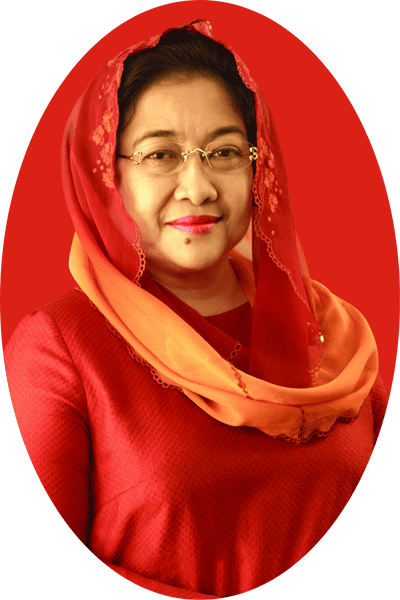
Megawati Sukarnoputri was president of Indonesia from 2001-2004. She placed strong emphasis on empowerment of women. She founded a new political party called the Indonesian Democratic Party of Struggle.
15. Joyce Banda (Malawi)
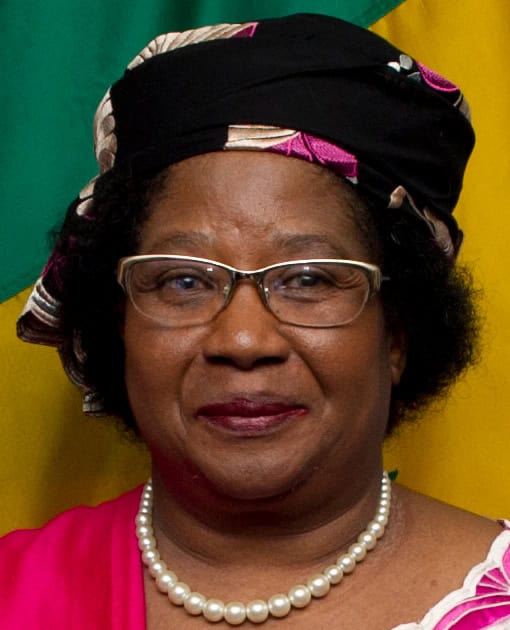
President of Malawi from 2012-2014, Joyce Banda started a foundation in her name to help with economic development and social issues in her impoverished country. She received awards for her contributions to human rights and development issues.
16. Tsai Ing-wen (Taiwan)
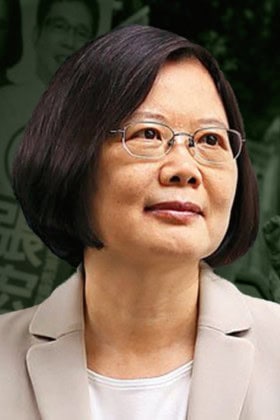
Tsai Ing-wen was a lawyer with degrees from Cornell University and the London School of Economics. She was president of the Republic of China (Taiwan) from 2016-2024. During her presidency, she worked to promote Taiwanese sovereignty and democratic values as well as strengthening ties with the United States and other Western allies.
17. Sanna Marin (Finland)
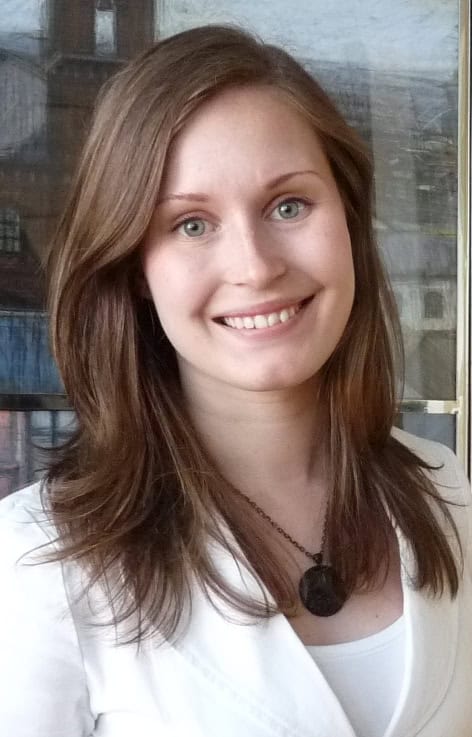
Sanna Marin was prime minister of Finland from 2019-2023. She was only 34 when she took office, making her one of the youngest world leaders in modern history. Her leadership in Finland came at a crucial time, as she was prime minister during the COVID-19 crisis.
18. Paetongtarn Shinawatra (Thailand)
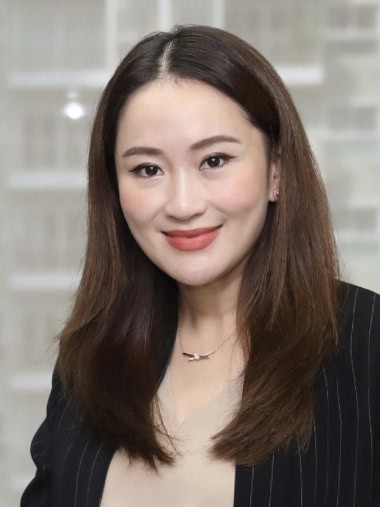
Paetongtarn Shinawatra is the current prime minister of Thailand. Her term of office started in August 2024. She is a businesswoman with a strong orientation toward social justice. In her words, she advocates “capitalism with empathy.”
19. Claudia Sheinbaum (Mexico)
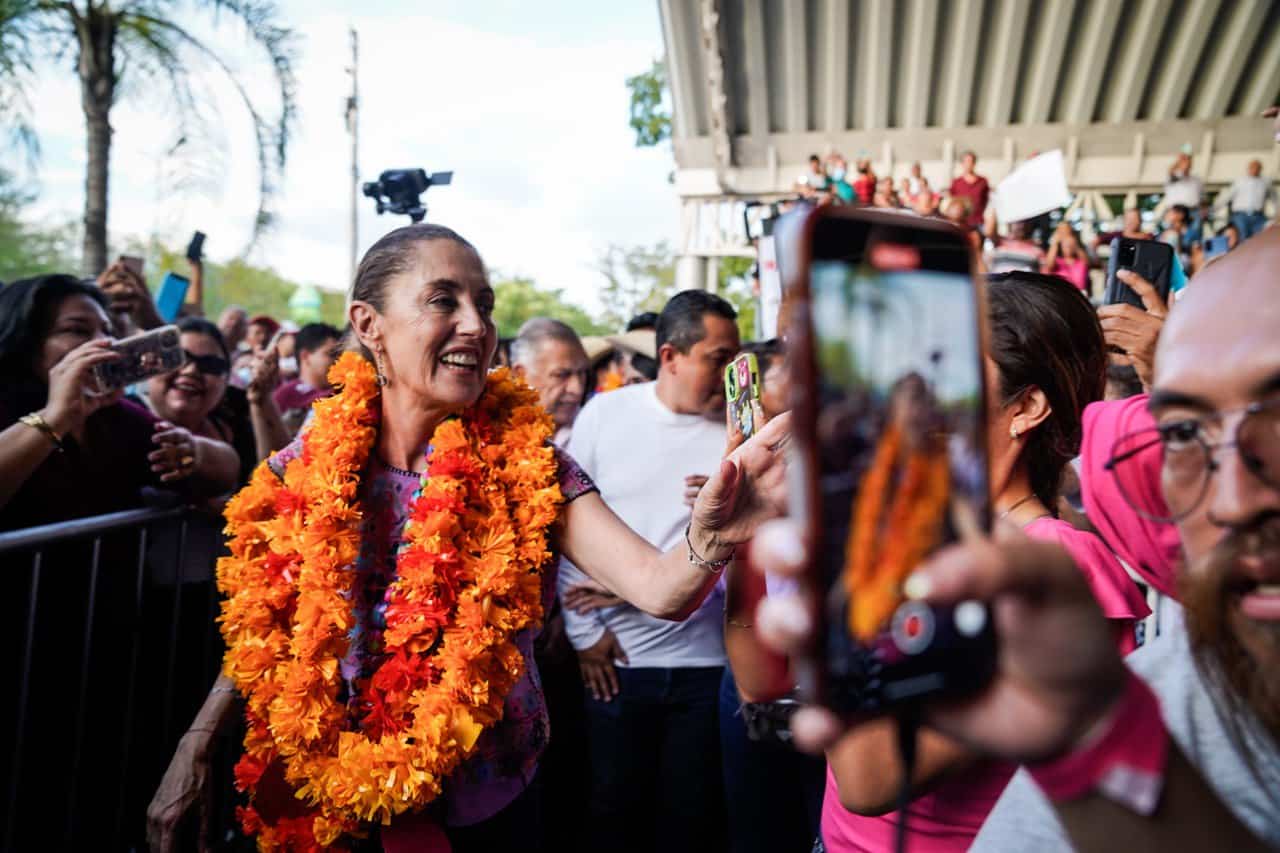
Claudia Sheinbaum is the current president of Mexico, having started her 6-year term of office in October 2024. She is not only the first woman but the first Jewish person to be elected to this office. She formerly served as the mayor of Mexico City. Sheinbaum was trained as an environmental engineer and won a shared Nobel Prize with other members of the United Nations Intergovernmental Panel on Climate Change.
Travel Cards Are Getting Too Good To Ignore (sponsored)
Credit card companies are pulling out all the stops, with the issuers are offering insane travel rewards and perks.
We’re talking huge sign-up bonuses, points on every purchase, and benefits like lounge access, travel credits, and free hotel nights. For travelers, these rewards can add up to thousands of dollars in flights, upgrades, and luxury experiences every year.
It’s like getting paid to travel — and it’s available to qualified borrowers who know where to look.
We’ve rounded up some of the best travel credit cards on the market. Click here to see the list. Don’t miss these offers — they won’t be this good forever.
Thank you for reading! Have some feedback for us?
Contact the 24/7 Wall St. editorial team.
